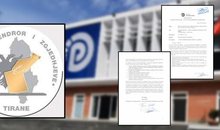
 Flash News
Flash News
Fire breaks out in a building in Astir
KAS rejected the request for a recount of votes, Alimehmeti sues the CEC in the Electoral College
Mahmut Orhan brings a unique experience with Curious X
Six police officers are sent to court, they did not impose fines even though they saw violations
Murder of Martin Cani/ 5 minors called to testify in Court, perpetrator denies charges
Terrorist acts, trials in The Hague and tensions in the North, what happened in Kosovo during 2024
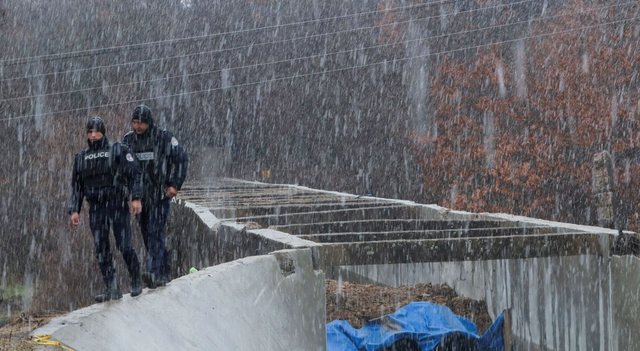
On the evening of November 29, Kosovo police said that an explosion in a village in the municipality of Zubin Potok in the Serb-majority north damaged the water supply channel from Lake Ujman, which serves several cities and the country's thermal power plants, which are the main producer of electricity.
Kosovo Prime Minister Albin Kurti called the attack a criminal and terrorist act, aimed at damaging the country's essential infrastructure.
"The attack was carried out by professionals, it is another criminal and terrorist attack that we believe comes from gangs directed and orchestrated by Serbia, which has both the interest, the willingness and the ability to cause such attacks and damage, in this specific case by using a large amount of explosives at a key node where repair is difficult," he said.
The explosion was condemned by the United States.
“We strongly condemn this horrific attack on Kosovo’s critical infrastructure, which endangers the country, its electricity supply, which endangers its heating and drinking water supply,” said US Ambassador to Kosovo Jeff Hovenier. The European Union called the explosion a terrorist act and called for the perpetrators to be brought to justice.
Belgrade denied involvement. “As a serious state, we were not involved in the accusations. We have not said and I will not say today that (Kosovo Prime Minister Albin) Kurti directly ordered the attack. The investigation will show. Because we are conducting our own investigation, of course. We have certain suspicions, but the investigation will eventually show who ordered it. We believe that we have some knowledge as to who the perpetrator might be,” said Serbian President Aleksandar Vučić.
The Serbian president said his country is under a "hybrid" attack, aimed at "slowing down" Serbia's European path.
Ten members of the Serbian community were arrested, two of whom were taken into custody as part of the investigation into the explosion. Police, who have increased security measures across the country, said they found and confiscated weapons and ammunition during raids in the area around the explosion.
The year 2024 began and ended with tensions in the north and consequently with tensions between Kosovo and Serbia, but also disagreements between the government in Pristina and its Western allies.
In February, a decision by the Central Bank of Kosovo came into effect, according to which the euro is the only currency that can be used for cash payments in Kosovo. The decision raised concerns among Serbian citizens who receive their salaries and pensions from Serbia in Serbian dinars. Belgrade reacted angrily…
"The goal... is the ethnic cleansing of the Serbian population from the territory of Kosovo, or as stated in the Genocide Convention, the deliberate subjection of Serbs to unbearable living conditions... With the Brussels agreements, Serbia has the right to finance Serbian institutions in Kosovo," said Serbian President Aleksandar Vučić.
Kosovo Prime Minister Albin Kurti said that the Central Bank regulation does not prevent Serbia from financially assisting citizens of the Serbian community in Kosovo and, according to him, any claim to the contrary is false propaganda aimed at creating ethnic tensions. In a video message in Serbian, he said that Kosovo has not banned the Serbian dinar, but its introduction in bags across the border.
"Until now, the method of introducing and transporting money across borders enabled criminal groups to receive illegally imported money, thus strengthening their influence over the people, intimidating the masses and encouraging criminals from the Serbian head of state," said Prime Minister Kurti.
Western diplomacy expressed disappointment with what it called an uncoordinated decision by the authorities in Kosovo. The United States requested a postponement of the decision's implementation, while emphasizing that the lack of coordination has affected the quality of the partnership between the two governments.
"I have to say that we currently have a communication problem with the Prime Minister (Albin Kurti) and this is not just a problem of the United States. I think it is a communication problem that Kosovo has with the European Union, with NATO, with Great Britain, with the United States and many other partners, including Albania and North Macedonia," said the US envoy for the Western Balkans, Gabriel Escobar.
The United States and the European Union did not question Kosovo's right to determine the method of payments, but sought a coordinated solution within the framework of the talks in Brussels. However, a series of technical talks mediated by the EU did not secure an agreement between the parties on this issue.
In early August, Kosovo police closed nine branches of the Serbian Post that were operating without a license in the north of the country. The Serbian Post in Kosovo provides postal and payment services for Serbs that are funded by official Belgrade. The action again provoked an angry reaction from Belgrade and the dissatisfaction of Western diplomats, who again called for the avoidance of unilateral actions.
At the same time, the Kosovo government informed Western diplomats of its plans to open the main bridge over the Ibar River in Mitrovica, which also marks the dividing line between the northern municipality inhabited by a Serb majority and the southern municipality inhabited by an Albanian majority.
The bridge, which is controlled by NATO-led peacekeeping forces, is only open to pedestrian traffic, not cars, although according to agreements reached within the framework of the Kosovo-Serbia talks, it was supposed to be opened.
"Representatives of France, Germany, Italy, the United Kingdom, the United States, along with the European Union ambassador, met today with Prime Minister Kurti to inform him that our governments, in consultation with NATO, cannot support any change to the current status of the Mitrovica bridge at this time," said the US ambassador to Pristina, Jeff Hovenier.
"We are interested in opening the bridge based on the plan that we have shared with our American and European partners, friends, and allies. We have held consultations with the Serbian community in northern Kosovo and in the south. Consultations have also been held with Albanians, as well as with the northern and southern municipalities of Mitrovica. We have also tested the physical and technical stability of the bridge over the Ibar River and are doing a design, decoration, because we also need to take care of the visual appearance of this bridge. We want to do it as soon as possible. But we will not surprise our European and American partners, friends, and allies on the one hand, but on the other hand, we will not be able to allow this issue to drag on indefinitely. We have good will and intention and we believe that the opening of this bridge is right, necessary, good, and beneficial for everyone," Prime Minister Kurti said in an interview with Voice of America.
The European Union warned in August that it may increase punitive measures against Kosovo if the administration in Pristina continues with unilateral and uncoordinated actions.
Since June 2023, Kosovo has been under punitive measures due to tensions that followed the forcible removal of Albanian mayors from their offices at the end of May of that year, which was strongly opposed by groups of Serbian citizens, who clashed with Kosovo police and NATO peacekeeping forces, injuring over 90 KFOR members.
The European Union had demanded the de-escalation of the situation in the north, the removal of special police units from municipal buildings, and the organization of new elections for mayors of municipalities inhabited by Serbs in northern Kosovo.
But an initiative to remove the mayors of municipalities in northern Kosovo failed, as Serbian political parties boycotted a referendum on the issue, which would have paved the way for new elections.
Failure to join the Council of Europe
In May, the Council of Ministers of the Council of Europe member states did not put Kosovo's membership on the agenda, although it received the green light from the Parliamentary Assembly of this mechanism in April. Although the government implemented a decision of the Constitutional Court that recognized the ownership of over 24 hectares of land to the medieval Monastery of Deçan, which was one of the conditions for progress towards membership, the process was blocked, as some member states reiterated that the condition is to take steps to establish the Association of Serb-majority Municipalities.
The agreement reached in February and March 2023 on the normalization of Kosovo-Serbia relations, among other things, foresees that Pristina will begin work on establishing the Association, while Belgrade will not oppose Kosovo's membership in international organizations.
In October of that year, European and American diplomats presented Kosovo and Serbia with a draft statute for the Association. The leaders of both countries said yes in principle to the document, but things have not moved forward, and an offer from the government in Pristina to draft a new document was rejected by European leaders, who insist on implementing the Ohrid agreement.
But efforts to revive the stalled implementation process failed to make any progress and Kosovo found itself under criticism from Western diplomacy.
Opposition parties in Kosovo criticized the government for, as they said, irresponsible behavior towards international obligations undertaken in the negotiation process, including the Association of Serb-majority Municipalities.
"One time they say we accept it, another time we don't accept it, another time they say we should sign it, then they say sign both, then it becomes an obligation of the European Union and now they say they don't accept it. So, they are playing games that are constantly damaging Kosovo as a result of political immaturity, as a result of diplomatic incompetence and as a result of arrogance in behavior," said the head of the parliamentary group of the Democratic League of Kosovo, Arben Gashi.
"There is a letter signed by the Prime Minister, the Speaker of Parliament and the President and there is also another letter from the government from the Minister of Foreign Affairs that they have accepted the Association. They can say it is "non paper" or not, but it has been accepted by the government and I am telling you with full responsibility they have left it at our door, meaning whoever comes, this government has left the Brussels Agreement, the Ohrid Agreement and the draft statute of the Association at the door", said the head of the parliamentary group of the Alliance for the Future of Kosovo Besnik Tahiri.
Prime Minister Kurti often repeated that the Association cannot be turned into an advantage in the process of normalizing relations with Serbia.
"The basic agreement is the main topic of relations between Kosovo and Serbia, then the others come. Serbia is interested in the basic agreement being forgotten, the implementation annex being forgotten, the dialogue being destroyed and the association being put like the cart before the horse...", he said.
The Kosovo government's disagreements with allies over developments in the north have also fueled clashes within the institutions themselves. In a clear reference to the disagreements, Kosovo President Vjosa Osmani said that alliances between states are bigger and more important than any politician or electoral party, and that endangering and undermining them harms Kosovo itself.
"Alliances are here to protect us, so putting them at risk, gambling with them, or violating them undermines the very defense of our Republic," she said.
The North and the alliances have now also become part of the campaign for the parliamentary elections expected to be held on February 9.
Trials at the Special Court in The Hague
In early December, the Hague-based Specialist Prosecutor's Office, which handles war crimes in Kosovo, announced that it had filed charges against former Kosovo President Hashim Thaçi for criminal offenses of obstruction of justice.
At the same time, the Prosecution arrested three people, Bashkim Smakaj, Isni Kilaj and Fadil Fazliu, for attempting to obstruct officials in the performance of official duties and disobedience to the court, and summoned former Minister of Justice Hajredin Kuçi for disobedience to the court. In his appearance before the court regarding the new charges, Mr. Thaçi demanded that the Constitution and laws of Kosovo be respected in the processes taking place in The Hague.
"I know that Kosovo is on the verge of general elections, but I am not part of the electoral race. I do not pose a political danger to anyone. Therefore, even today I believe in and respect the Constitution and Laws of Kosovo. I ask even today from all of us who are sitting on whatever side or in whatever uniform we are in this hall to respect the Constitution and Laws of Kosovo because the Specialized Chambers are a product of the institutions of the Republic of Kosovo," he said.
On April 3, 2023, the trial against former President Thaçi and three other former officials began at the Special Court, on charges of war crimes and crimes against humanity.
Mr. Thaçi, Jakup Krasniqi, Kadri Veseli and Rexhep Selimi, senior leaders of the Kosovo Liberation Army, who were arrested in the fall of 2020, are accused of persecution, imprisonment, other inhumane acts, torture, murder and enforced disappearance of persons.
All defendants deny the prosecution's allegations.
So far, the Special Court has convicted two former leaders of the KLA War Veterans Organization, Hysni Gucati and Nasim Haradinaj, for obstruction of justice, and has issued two verdicts for war crimes. Former KLA commander Salih Mustafa was sentenced to 26 years in prison in December 2022 on charges of unlawful killing, arbitrary detention, and torture. In December 2023, the Appeals Chamber of this court reduced his sentence to 22 years, while in September his sentence was reduced to 15 years in prison.
In July of this year, the Court sentenced former KLA member Pjetër Shala to 18 years in prison for the crimes of arbitrary detention, torture and murder.
According to the United Nations, every ten minutes a woman is murdered in the world, and about one in three women in the world experiences violence. Behind these numbers are stories of deep pain. One of the victims of domestic violence, while speaking to Voice of America, said that for ten years she endured constant psychological and physical violence from her husband.
"When he hit me, I was seven months pregnant, I had a little boy, he wasn't even a year old yet. When he hit me, the boy screamed loudly from the noise and my screams because it was a terrible blow. I was pregnant, but he didn't think whether he was hitting me in the stomach, leg, hand or left side, and when he hit me, he brought me to my feet," she says.
Adelina Berisha from the Kosovo Women's Network told Voice of America that repeated cases of violence are turning into femicide. "This year, we had a woman killed at the doors of the Center for Social Work, a woman who had been reporting the case to institutions for years was killed. But because of the stigma, because of the social pressure that women have, the deceased tried in various ways to save the marriage, which unfortunately led to murder, to her death," she said.
Three women were murdered during 2024 by their husbands, bringing the number of women murdered since 2010 to 58.
According to data from the Kosovo police, from January to October 2024, over two thousand 500 cases of domestic violence were recorded.
During an event within the framework of the 16-day campaign against gender-based violence, the Kosovo Women's Network warned that in only about two percent of cases, judges impose prison sentences, while in 98 percent of cases of violence against women, only fines or suspended sentences are imposed, in a country where women's equality is a condition for progress. /Voa/
Latest news

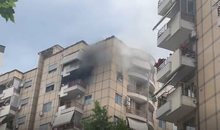
Fire breaks out in a building in Astir
2025-06-02 20:22:46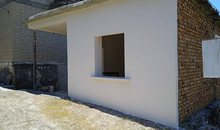

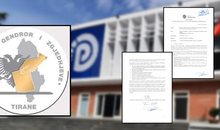

Two women threaten the Saranda prosecutor in her office
2025-06-02 19:09:20
Etna wakes up again, the most active volcano in Europe erupts
2025-06-02 19:00:36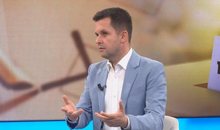

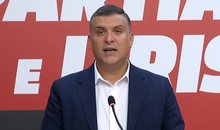
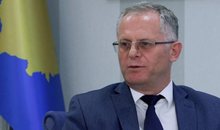
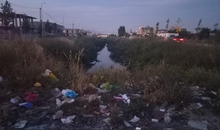
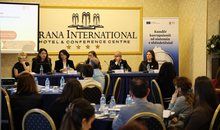
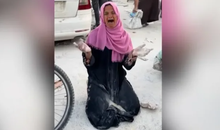
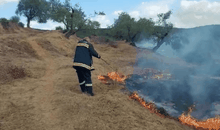
Fire reactivates in Darëzeza forest, firefighting efforts impossible
2025-06-02 17:28:29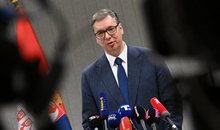

Cultivating cannabis on a plot, 35-year-old arrested in Mirdita
2025-06-02 16:59:27

Switzerland/ Albanian caught with drugs worth over 1 million euros
2025-06-02 16:50:38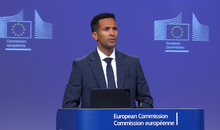
Kosovo-Serbia dialogue meetings resume in Brussels
2025-06-02 16:32:44
The VPN Era in Albania: How the TikTok Ban is "Failing", Video Views Increase
2025-06-02 16:26:36
Mahmut Orhan brings a unique experience with Curious X
2025-06-02 16:19:55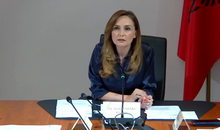

Businesses "forgot" to pay for elections, liabilities reached 4.7 billion lek
2025-06-02 15:50:27
Photo/ Caught with cocaine, Albanian arrested in Britain
2025-06-02 15:31:12
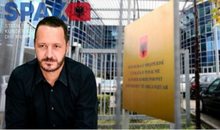

He violently opposed police officers, 39-year-old arrested in Vlora
2025-06-02 15:04:28

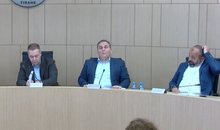
DP demands Rusmal's expulsion from KAS, Logu: It is biased, Begaj's advisor
2025-06-02 14:37:24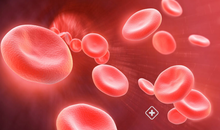
Anemia is increasing in the population
2025-06-02 14:32:18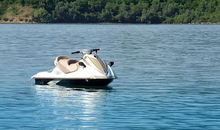


Fires in Darëzezë reactivate, wind spreads flames
2025-06-02 13:57:33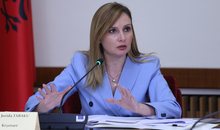

Traffic jams and over 14 thousand fines, Traffic Police take stock of the week
2025-06-02 13:40:51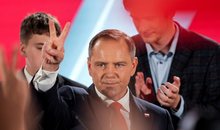
Eurosceptic Nawrocki wins presidential election in Poland
2025-06-02 13:33:27

Hysaj: Against Serbia with calm and courage, this match is for national pride
2025-06-02 13:14:41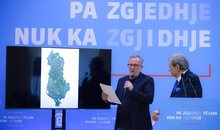

Bulgaria defies chaos and continues on path to euro
2025-06-02 12:53:28
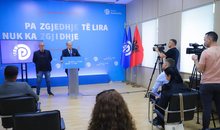
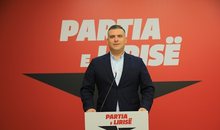
Elected MP, Tedi Blushi resigns from Tirana Municipal Council
2025-06-02 12:29:36
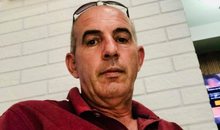
Murder in Tale, the author of the execution of Pjetër Kazaj is identified
2025-06-02 12:07:27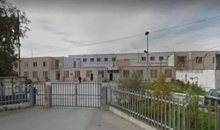
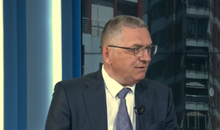
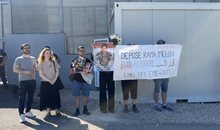
'Justice for Hamid': Activists protest against Gjadri camp
2025-06-02 11:41:26
The draw is made, judge Elsa Ulliri will judge the "Partizani" case
2025-06-02 11:26:52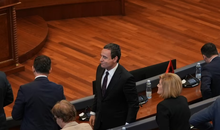
The 25th attempt to constitute the Kosovo Assembly also fails
2025-06-02 11:12:29

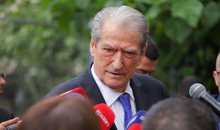

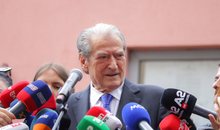
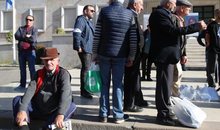
Coefficients, how calculations are made for newly retired people
2025-06-02 10:11:17
Two vehicles burned in Maliq, arson suspected
2025-06-02 10:00:03
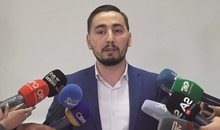
Logu: They deny us transparency about the May 11th farce!
2025-06-02 09:44:46
Ten ways to feel energized if even coffee doesn't work for you
2025-06-02 09:33:49
I shpallur në kërkim për llogari të Kosovës, arrestohet i riu nga Tepelena
2025-06-02 09:24:39
African heat wave begins in Albania, meteorology warns of dry summer
2025-06-02 09:11:48
Foreign exchange, how much foreign currencies are sold and bought today
2025-06-02 09:02:45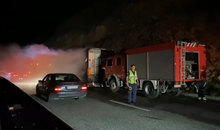
Truck catches fire on 'Rruga e Kombit', driver escapes
2025-06-02 08:56:21
On the May 11 electoral farce in Albania
2025-06-02 08:47:54
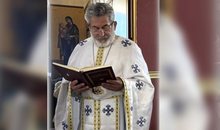
Priest Kristaq Vaso dies after falling from church roof in Korça
2025-06-02 08:32:29

Horoscope, what do the stars have in store for you today?
2025-06-02 08:10:47
Stable weather across the country, weather forecast
2025-06-02 07:59:25
Morning Post/ In 2 lines: What mattered yesterday in Albania
2025-06-02 07:46:43
Official, Juventus appoints Damien Comolli as general director
2025-06-01 21:57:45
"Russia could attack NATO in the next 4 years," warns German defense chief
2025-06-01 21:34:42
Kuçana: Opposition candidates have been threatened by "Rama's gangs in Shkozet"
2025-06-01 21:11:15
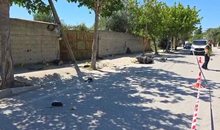
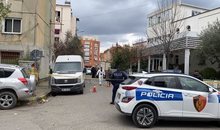
15-year-old injured in shooting at Ali Demi's pizzeria, details from police
2025-06-01 19:51:19

Russia accuses Ukraine of 'terrorist attack' on air bases
2025-06-01 18:57:24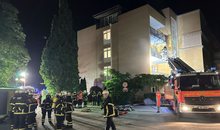
A hospital in Hamburg, Germany, catches fire, killing three patients
2025-06-01 18:32:28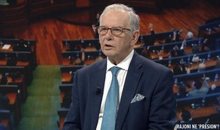
Nesho: Rama's autocratic regime has not allowed free elections to take place
2025-06-01 18:10:23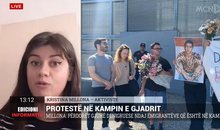
Moroccan immigrant's suicide, activist: There are inhumane conditions in Gjadra
2025-06-01 17:49:32
World Bank Report, PL: Confirms that the majority of Albanians live in poverty
2025-06-01 17:23:56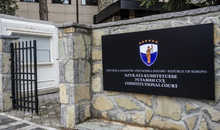

31 dead after Israeli attack near Gaza aid center
2025-06-01 16:40:30
At least 150 dead in Nigeria floods
2025-06-01 16:14:26
Flames engulf the Darëzeza forest massif in Fier
2025-06-01 15:56:41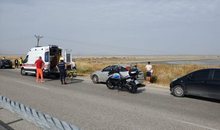
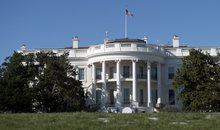
SHBA-ja i dërgon Iranit një propozim për marrëveshje bërthamore
2025-06-01 14:54:11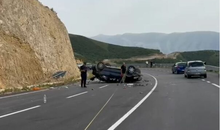
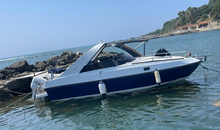
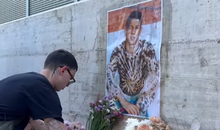
Moroccan immigrant commits suicide, activists protest in front of Gjadri camp
2025-06-01 13:48:17
PSG victory celebrations turn into tragedy, two dead, over 500 arrested
2025-06-01 13:26:33
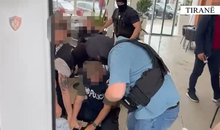
Kosovo-Albania arms trafficking, Tirana Court leaves 8 arrested in prison
2025-06-01 12:41:11
Foreign worker dies at work, engineer of construction firm arrested in Tirana
2025-06-01 12:20:27
Car hits motorbike, 25-year-old dies in Bilisht
2025-06-01 11:56:56
